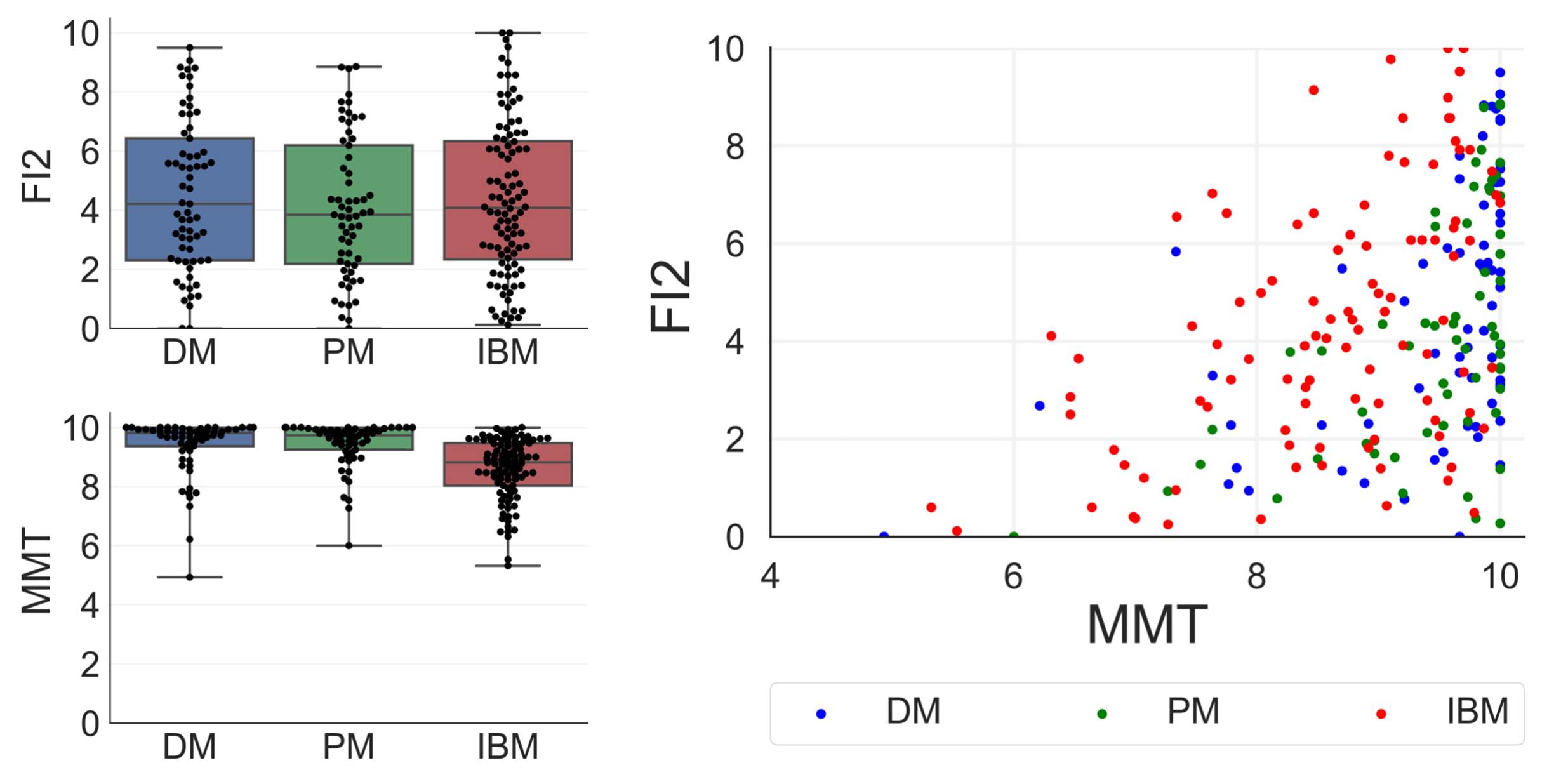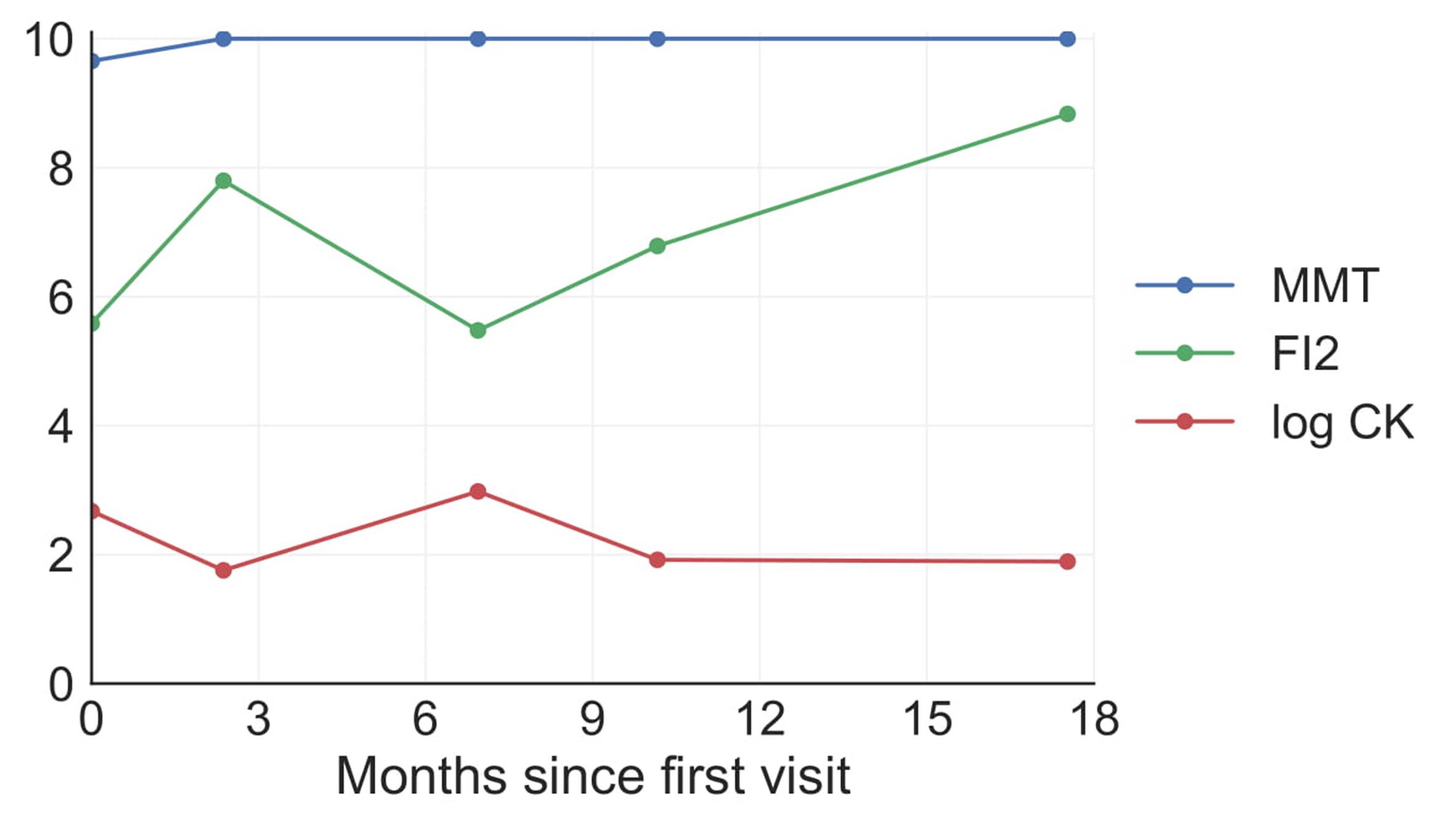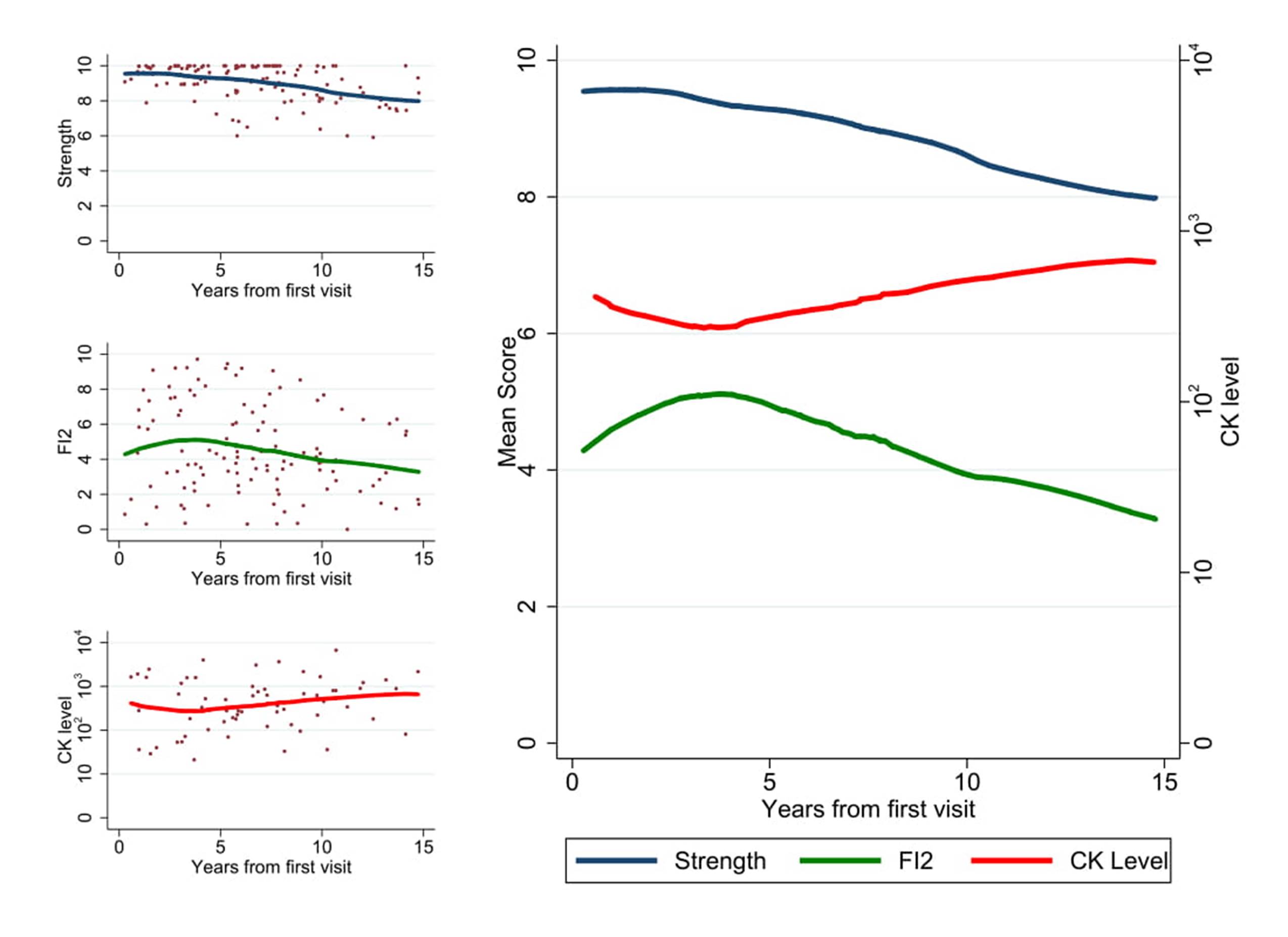Session Information
Date: Sunday, October 21, 2018
Title: Muscle Biology, Myositis and Myopathies Poster I: Clinical Features and Disease Course
Session Type: ACR Poster Session A
Session Time: 9:00AM-11:00AM
Background/Purpose: To assess muscle function in myositis patients, clinicians typically use manual muscle testing (MMT), a measure of maximal isometric strength. However, patients with high baseline strength and/or mild muscle impairment often report functional changes undetected by MMT. We investigated whether quantifying muscle endurance using the Myositis Functional Index-2 would identify muscle impairment uncaptured by MMT.
Methods: We reviewed the records of myositis patients from a large single-center cohort who had at least one FI2 muscle endurance assessment (n=128, 226 patient-visits). Patients with dermatomyositis (DM; n=31) and polymyositis (PM; n=39) met Bohan and Peter criteria. Patients with inclusion body myositis (IBM; n=58) met 2011 European Neuromuscular Centre diagnostic criteria for probable or definite IBM. MMT strength data were converted to a 0-10 scale using standard Kendall conversion.
Results: Composite FI2 endurance scores were similar in patients with IBM, DM, and PM, although IBM patients had diminished strength (Figure 1). At the population level, muscle endurance correlated with and evolved very similarly to strength over time, inversely to serum creatine kinase (Figure 2). However, in patients with normal or near-normal strength (mean MMT >9.75/10; n=62), FI2 scores were typically abnormal and highly variable (mean FI2, 5.6/10; interquartile range, 3.3-7.8/10), suggesting the presence of muscle impairment not reflected by MMT. In an illustrative case, a DM patient with high baseline strength complained of flaring muscle weakness which was reflected by FI2 but not MMT scores (Figure 3).

Figure 1: Composite FI2 endurance and MMT strength scores in myositis patients.
Figure 2: MMT and FI2 scores evolved similarly over time, inversely to serum CK levels. Locally-weighted regression of all myositis patient data.

Figure 3: The evolution of MMT, FI2, and serum CK in a DM patient with a disease flare at month 7.
To cite this abstract in AMA style:
Amici D, Pinal-Fernandez I, Pagkatipunan R, Mears A, De Lorenzo R, Tiniakou E, Albayda J, Paik JJ, Lloyd TE, Christopher-Stine L, Mammen A, Chung T. Muscle Endurance Deficits in Myositis Patients Despite Normal Manual Muscle Testing Scores [abstract]. Arthritis Rheumatol. 2018; 70 (suppl 9). https://acrabstracts.org/abstract/muscle-endurance-deficits-in-myositis-patients-despite-normal-manual-muscle-testing-scores/. Accessed .« Back to 2018 ACR/ARHP Annual Meeting
ACR Meeting Abstracts - https://acrabstracts.org/abstract/muscle-endurance-deficits-in-myositis-patients-despite-normal-manual-muscle-testing-scores/

